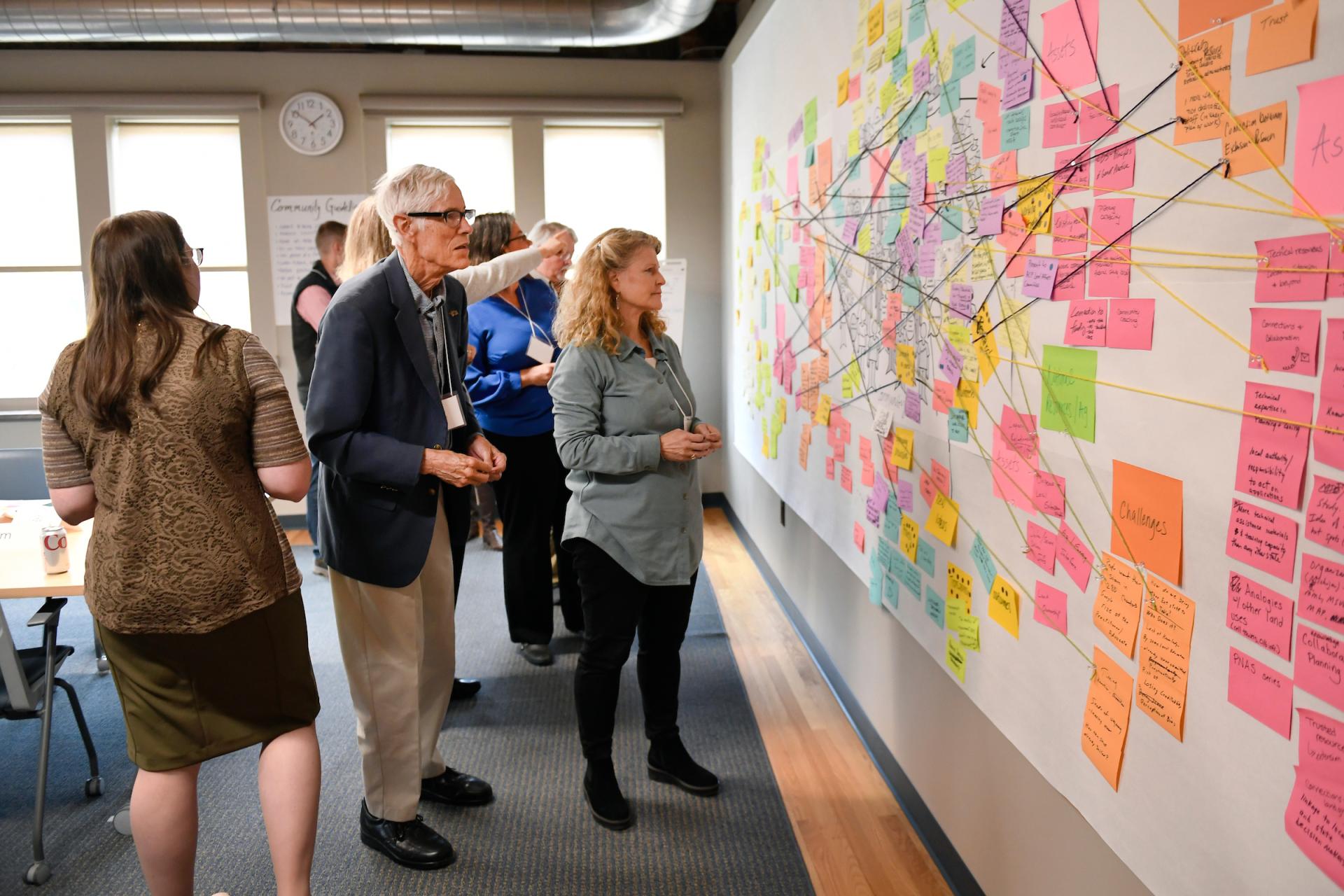
Program: Center for EmPowering Communities
Program details » | All Center for EmPowering Communities projects »
In October 2022, the Graham Institute, with funding from the Heising-Simons Foundation, convened a small gathering of land grant university Extension professionals in the Midwest.
The purpose of the convening was to discuss the role Extension professionals currently play in conversations about renewable energy and how, if interested, they might expand that role in the future. The convening included Extension professionals and staff who work on energy or community development, along with staff from DOE and USDA, renewable energy developers, social science researchers, and professionals with land-use planning expertise.
In a process designed and facilitated by U-M’s Center for Socially Engaged Design, the convening included a stage-setting dinner followed by a daylong workshop.
The group started the day by responding to a prototype of a vision co-developed, prior to the workshop, by Graham’s Sarah Mills with Michael Wilcox of Purdue University and Dahvi Wilson of Apex Clean Energy. The prototype vision outlined a constructive, unifying planning process that would help rural communities fairly and comprehensively evaluate the opportunities renewable energy presents them. Convening participants were invited to reflect on the vision and respond to the image.
Some key themes emerged through this process.
- Participants advocated that community conversations should have the goal of advancing rural prosperity—a challenge for which renewable energy may or may not be the appropriate solution. This approach would give communities the chance to consider energy infrastructure not as the problem, but as a potential means to a desired end.
- Trust and transparency were identified as qualities currently lacking in many renewables planning discussions, but essential for facilitators. Extension professionals often have the trust of rural stakeholders, and while that trust was recognized as an asset, maintaining trust and the fear of losing trust were noted as challenges.
- Participants voiced concern that misinformation is part of too many planning processes and underscored the need for community conversations to be grounded in facts. They noted that Extension, as an entity with one foot in the academy and another in communities, can bring research to the process, but facilitators and planners may need training on the science behind energy and its community-level impacts.
- Participants noted the importance of inclusivity in the community discussion, including the diversity of voices in a community and especially recognizing the most vulnerable voices need to be part of the community conversation.
This rich input from convening participants builds a basis for understanding the assets and challenges faced by many of the key actors in real-world implementation of renewable energy.